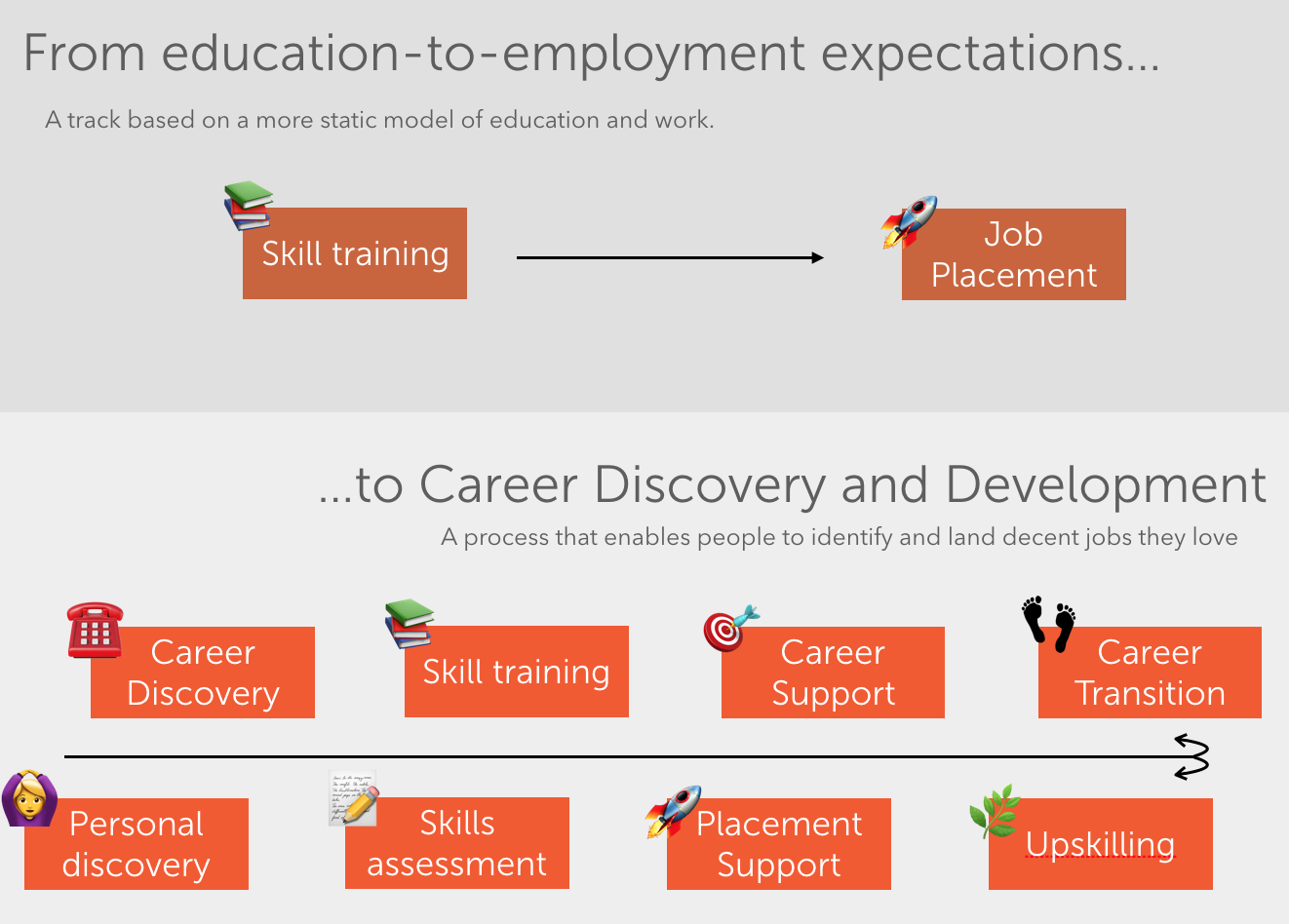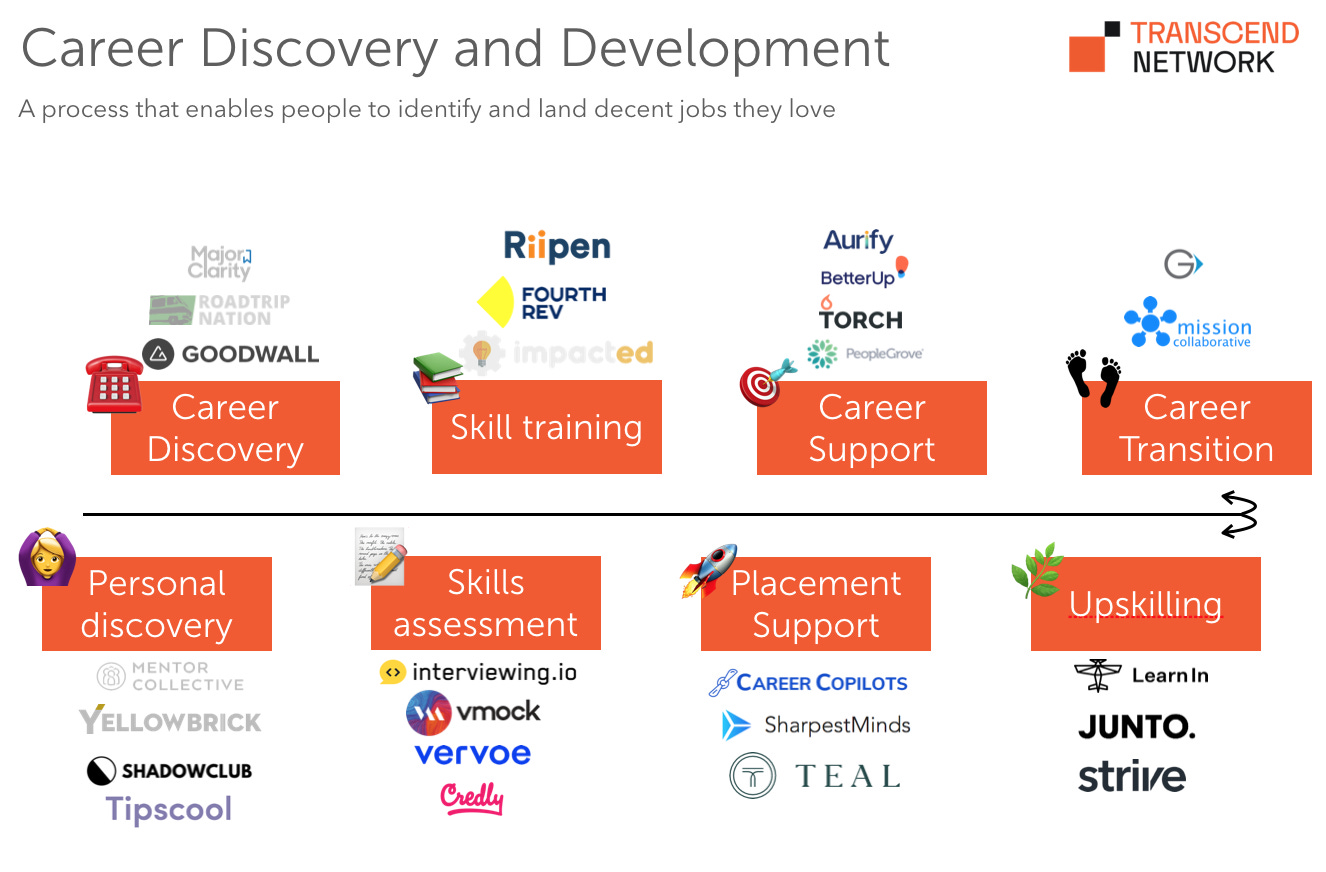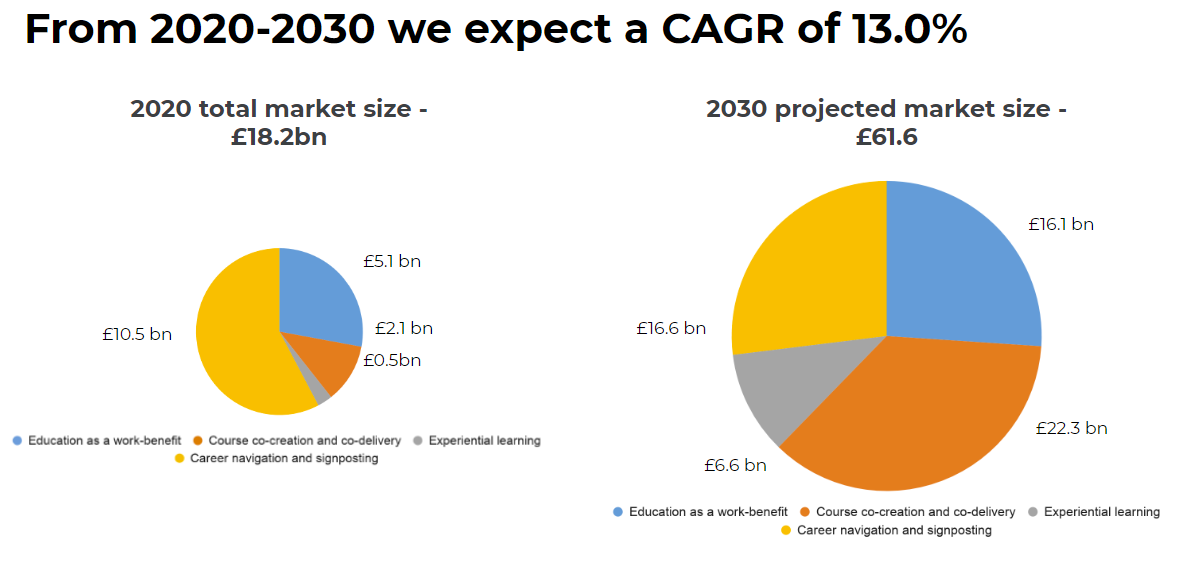Finding work you love 👩🚀 Transcend Newsletter XXVI
We need to build more than job boards to find meaningful and relevant opportunities to work and learn. It's time we step up our game!
Welcome back!
This week we bring you not a practical guide on how to get a job you love, but rather a perspective on why we must invest in systems that help people find this meaningful work in order to address important societal issues, and point you to who’s already doing this today.
Got a friend who you always go to for career advice? Share this newsletter with them! There is no better way to support us, we’ll incredibly be grateful.

Kahneman and Tversky taught us that in order to understand the world, we must get out of our labs and our own heads, and observe reality as it is. They would go on to start what became “behavioral economics”, a school of economic thought that sought to understand the economy based on what humans actually do, rather than what they logically *should* do.
We can use that lens to understand the complex world of work: our readers will be more than familiar with the idea of the skills gap, the mismatch between the skills employers demand, and the skills the candidates possess in the labor marketplace. The global size of this gap is in the tens of millions of unfilled job descriptions globally.
You may ask "why don't universities offer more 10x more courses for those specific skills to address the issue?". That’d probably help to indeed. But here's the deal: there's already enough educational infrastructure to prepare 10x the number of prepared graduates. Further, what we see "on the ground" is that a majority of the decisions made by job-seekers are not necessarily closing that gap, but are rather confused steps attempting to navigate the opaque world of employment.
The skills gap through the lens of poor career development.
I want to think our behavioral economist friends would want to understand the perspective of job-seeking candidates first. The evidence suggests many feel lost and don't know where to start to land meaningful and decent jobs: two-thirds of US employees reported being disengaged at work, and 13% of UK employees reported being unhappy at work, which translated into 15M days lost per year due to mental health problems affected by work.

Here's a proposition we'll explore today:
Addressing this skills gap issue is as much about improving the placement mechanisms (that match candidates with employers) as it is about building better systems for career discovery and development. This last part I’ll define as the process that enables people to identify and land jobs they love (my own definition). This plays a crucial part in guiding societies towards decent jobs, particularly at a time when the nature of jobs is changing faster than ever.


Why is career discovery and development important? There's a wide range of interventions here, but their common goals generally include guiding the applicant to find opportunities that are meaningful (aligned with their goals, aspirations, and skills, per the Unlocking Career Potential report above) and economically aligned with their level of training (as much as 20% of the US population is underemployed, including 40% of recent graduates).
Here's a mental model we propose, in order to shift from static education-to-employment tracks to more dynamic frameworks of career discovery and development.

1. Personal Discovery
This is the foundational stage, and it involves fostering a deeper understanding of the self, one's own interests, passions and talents, as well as their aspirations and goals.
Projects: Tipscool (connection to mentors), Shadow Club (mentors as microconsultants), Yellowbrick (courses that tap into passions), Mentor Collective (mentors for universities)
2. Career Discovery
This next step involves understanding the career possibilities that exist, and how a better understanding of the self can be translated into better career decisions.
Roadtrip Nation (pathways exploration), Major Clarity (classroom to career guides), Goodwall (student community for career exploration)
3. Skills assessment
After the personal and career discovery, it's time to understand the skills one has built over time, often in environments that don't assess or highlight valuable soft and hard skills.
Credly (microcredential), Vervoe (job-related skills testing), Interviewing.io (automated interview testing), VMock (automated skills analysis)
4. Skill training
Like traditional skills training, but much more targetted: it involves training the skills one wants to strategically develop to achieve their career goals. One major innovation is around bringing industry skills into university curricula.
Riipen (industry challenges and content for students), FourthRev (industry-relevant curriculum), ImpactEd (industry-relevant curriculum and hiring pipeline)
5. Placement Support
This is a new category of organizations that support candidates through their job search given how opaque this process can be, helping them navigate the noise through mentorship and connections.
Career Copilots (placement support through mentors/copilots), Sharpest Minds (placement support through data science mentors), Teal (community-based job search support)
6. Upskilling
An underrated way of developing one's career is through upskilling, or developing skills while at a job.
Guild Education (upskilling for employees through universities), LearnIn (financing and surfacing upskilling opportunities for employees), Strive Talent (training platform using technology + people), Junto (bite-sized upskilling courses).
7. Career Support
Access to coaching and career support has generally been fairly limited to professionals who could afford it, but a new wave of organizations are making it more accessible and effective.
PeopleGrove (coaching for students), BetterUp/Torch (coaching for employees), Aurify (personal growth and accountability tool for coaches)
8. Career Transition
In a world where the half-life of a skill is only 5 years, career transitions should be encouraged and facilitated by organizations that enable these career shifts.
Mission Collaborative (online program to discover careers you love), Guild Education's Next Chapter and other "skills training" players that are focused on this group and on "outplacement".

Trends in career discovery and development
Here are some emerging trends we see in this process of career discovery and development:
Going direct to employers: selling is increasingly common, such as Guild Education, which helps companies manage their education benefits and now has expanded to cover their outplacement benefits.
Tech-enabled coaching: in the same way that tools for teaching can increase access, technology can enable new tools for coaching by lowering operational costs. Eventually, Machine Learning applications could take up some of the tasks of a coach, particularly related to accountability, connection to resources and basic career advice, much like what Aurify is building.
Surfacing and assessing skills: emerging projects are focused on assessing and highlighting relevant past experiences from the candidates that may apply to the employer's demands. This process helps candidates "translate" their skills and experiences into the language of their employers (what our friend Jesse Silberberg has termed "Career Translation")
Vertical platforms: vertical platforms take on many of these outlined steps, but only focused on one specific vertical or discipline. While not all cover the same steps, some great examples include TalentPath (fully integrated process for tech talent), Contra (referral-based hiring network), Homeroom (sector-specific learning communities and hiring platforms), or platforms for emerging industries like Kanna (fully integrated training and hiring platform for the cannabis industry).
What do you think? We’d love to get your thoughts: please leave a comment or reply to this email!

👭Learning Equality, a nonprofit addressing the equity challenges faced by learners in low-resource contexts, is doubling down on its mission during the pandemic and making their response to the virus public.
📹Techstars launches its new Workforce Development Accelerator in Boulder, Colorado to support startups shaping the world of skills and workforce development.
🌎Interested in studying abroad and gaining international experience? Get access to 7000+ study abroad programs and scholarships for free by signing up for a short 20-minute interview with StudyFree. Email viktorina@studyfree.org to participate/learn more.
🎒Higher education can’t change by itself: Emerge Education analyzes the world of university-employer partnerships, and how it can shape the experience to meet the student, industry and societal expectations of new universities!

If you want more brain candy, check out our Transcend Reading Notion page and our Open Theses around the future of learning and work.

All the updated job opportunities can be found on our Job Board!
Course Writer - Junto
Operations Manager - Mission Collaborative
Coaching / Client Services Associate - Career Copilots
Product Designer - Commsor
Coding Instructor - Adjacent Academies
Teachers (Multiple) - ZipHomeschool
Fill out this form if you are looking to hire or get hired, and check out our job board for updated openings.
Thanks for reading another week! For any feedback, requests or ideas, simply reply to this email.
And many thanks to those who contributed their time and insights to this newsletter: Jesse Silberberg, Rey Castellanos, Alisha Fredriksson, Yueh Han, Zoey Haar, Linda Xia, Ang Li-Lian, Yueh Han Huang and Kayla Cohen.
Please take a minute to share if you found this newsletter interesting!


